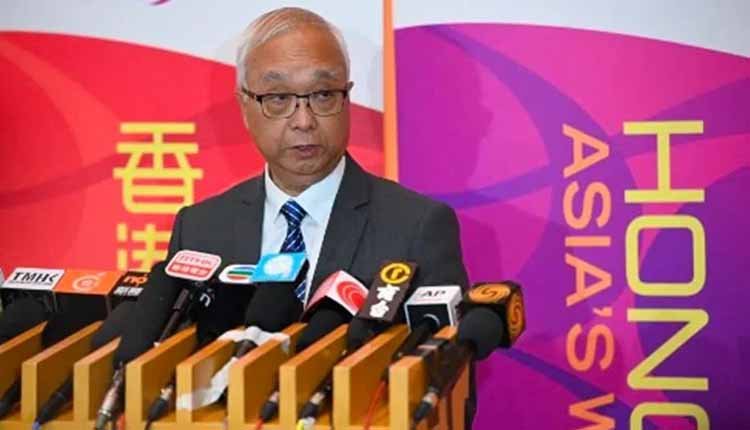Fukushima water release: Hong Kong mulls ban on Japan seafood imports over radioactivity concerns
Japan says the release of more than 500 Olympic swimming pools’ worth of water into the sea is safe
Hong Kong plans to ban the import of “aquatic products” from 10 Japanese prefectures after city leader John Lee condemned Tokyo’s plans to release water from Fukushima nuclear plant into the sea, a government minister said on Tuesday.
The 10 prefectures named were Tokyo, Fukushima, Chiba, Tochigi, Ibaraki, Gunma, Miyagi, Niigata, Nagano and Saitama.
Backed by the United Nations atomic agency, Japan has announced to release of more than 500 Olympic swimming pools’ worth of water into the sea, 12 years after the Fukushima disaster.
However, Japan’s decision has gathered huge pushback from neighbouring South Korea, China, and Hong Kong, which is the second-largest importer of food products from Japan after China.
In a press briefing, Hong Kong’s Secretary for Environment and Ecology Tse Chin-wan said: “The (Hong Kong) government will ban the imports of all aquatic products from 10 prefectures of Japan from the 24th of August.”
No time limit for ban
Tse added that was no time limit for the ban, as it depends on “how well the Japanese government’s supervising system works”.
Japanese food has immense popularity in Hong Kong, home to groceries specialising in imported seafood products as well as upscale omakase restaurants.
The decision by the Hong Kong authorities came the same day the Japanese government announced the water’s discharge, with city leader John Lee taking Tokyo to task for deciding “on its own”.
“It disregards the risks to food safety and the irreversible pollution and damage to the ocean ecology, and is an irresponsible way of pushing one’s problems onto others,” Lee said in a Facebook post earlier on Tuesday.
China’s concerns
Last month, China’s General Administration of Customs threatened a blanket ban on all foodstuffs from the same 10 prefectures.
Chinese foreign ministry spokesperson Wang Wenbin renewed Beijing’s objections on Tuesday, saying it would take “necessary measures to safeguard the marine environment, food safety and public health”.
In releasing the water, Wang said, Japan “is openly… putting its self-interest over the long-term well-being of all humankind”.


Comments are closed, but trackbacks and pingbacks are open.